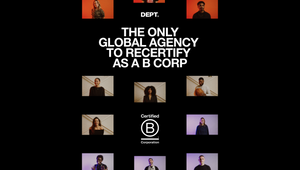
The New Roadmap for Auto Brands

Remember when MTV only had music? Or when Nike just sold running shoes? The question du jour will one day be: remember when car brands were just car brands?
A number of factors are driving one of the largest transformations in the history of transportation.
Uber and Lyft put yellow cabs virtually out of business by becoming one themselves - all without owning a single vehicle. Gen Z is delaying the once-anticipated milestone of getting a license, opting for these ridesharing services.
Coupled with the proliferation of autonomous and self-driving technology, the stage is set for exciting change.
But what will the changes look like? Here are four hot takes about the future of the auto industry.
Google and Apple will leapfrog heritage car brands
Consumer expectations inside the vehicle will jump dramatically higher. Subsequently, because if-ya-can’t-beat-em-join-em, virtually every auto OEM will need to become a software-first company.
Apple made computers, then mobile phones and media players, streaming devices, and VR headsets. Soon, Apple cars will be everywhere. Google is working on Waymo, formerly known as the Google Self-Driving Car Project. Both tech companies are showing early signs of becoming a car brand, and car brands will need to show their ability to reinvent themselves by becoming data or media companies.
The future is bright for unorthodox players to cash in on the ultimate connected device - your kid’s next ride. According to Intel, autonomous vehicles will generate four terabytes of data related to your driving behavior, in just 90 minutes on the road. McKinsey says this equates to roughly $750 billion in revenue by the end of the decade.
Tech brands that took note are on the verge of making a big splash with their own vehicles. Go soft now, avoid hard times later.
Car brands will stop force-feeding millennials’ shrinking appetite for ownership
The average American spends nearly $11k annually to own a vehicle that’s parked 95% of the time. People are ditching their car for ride-sharing services but auto brands will claw back market share from Uber and Lyft by offering their own subscription-based services.
There will be no third parties or outsourcing - or virtually none. One auto brand will own all the gadgets inside the car and every step of the rental process. This vertical ownership of in-car devices and experiences will be like how Apple operates with its proprietary hardware and software.
Would it surprise anyone if Apple offered a subscription-based car service? Sounds like a fancy word for…renting a car. It may not be the most innovative idea, but Apple made computers cool and they’ll do the same with car rental companies.
As a result of now owning the data, new revenue streams will be created. Tech giants will sell their vehicle data to city planners, ad agencies, and anyone interested in your mobility habits.
Auto manufacturers will exact revenge on insurance companies. And license to cellular carriers
Stellantis, the automaker behind Chrysler, Dodge and Jeep, announced at CES 2023 an in-car unit, MobiliSights, that they expect to reach 34 million connected vehicles by the end of the decade. It will sell data associated with your vehicle and travel behavior to insurance companies, who currently own the info.
Stellantis is also bringing wireless services to its fleet, paving the way for data consumption to skyrocket when cars become a living room on wheels.
Travelers will be consuming exponentially more data, and car brands will have total ownership of it instead of purchasing from insurance companies.
As a result, tech brands will turn the tables and sell the data to insurance companies, creating new revenue streams for tech brands breaking into the auto business. Don’t be surprised if car brands begin licensing vehicle data packages to cellular carriers for customers to then purchase.
They’ll pave the parking lot and put up a paradise
Remember when phone booths were a staple of cityscapes? Parking lots won’t disappear but will dwindle as ridesharing continues to rise.
With WFH culture on the rise and many cities now charging fees to drive there, the number of parking spots will decrease. This will pave the way for businesses to create larger drop-off areas, but still much smaller than your typical massive lot or garage.
The parking garages that remain will be a lot smarter. We’re already seeing real-time data for vacant spots, city maps with live looks at available street parking, and so on.
The great Joni Mitchell once wrote, “they paved paradise and put up a parking lot.” As city layouts are reimagined, perhaps pockets of the concrete jungle can become greener. Car manufacturers, often villains to environmentalists, can have a significant positive impact by helping to turn antiquated parking lots into sprawling city parks.
“They paved the parking lot and put up a paradise” doesn’t sound as catchy, but we have the historic opportunity to add back slivers of paradise for future generations.
For auto manufacturers, it’s the cherry on top of exciting change to come - as long as you don’t get left behind on the road to a new kind of mobility.















